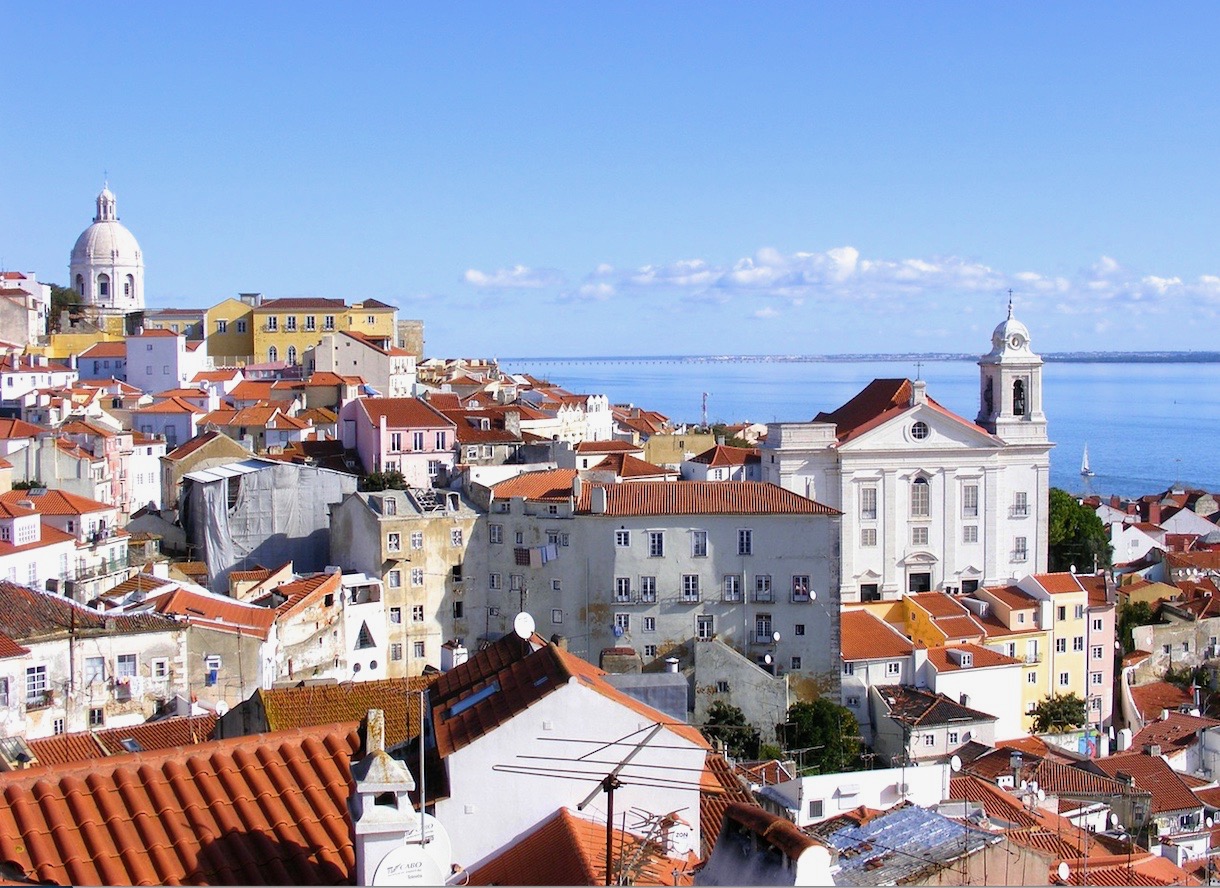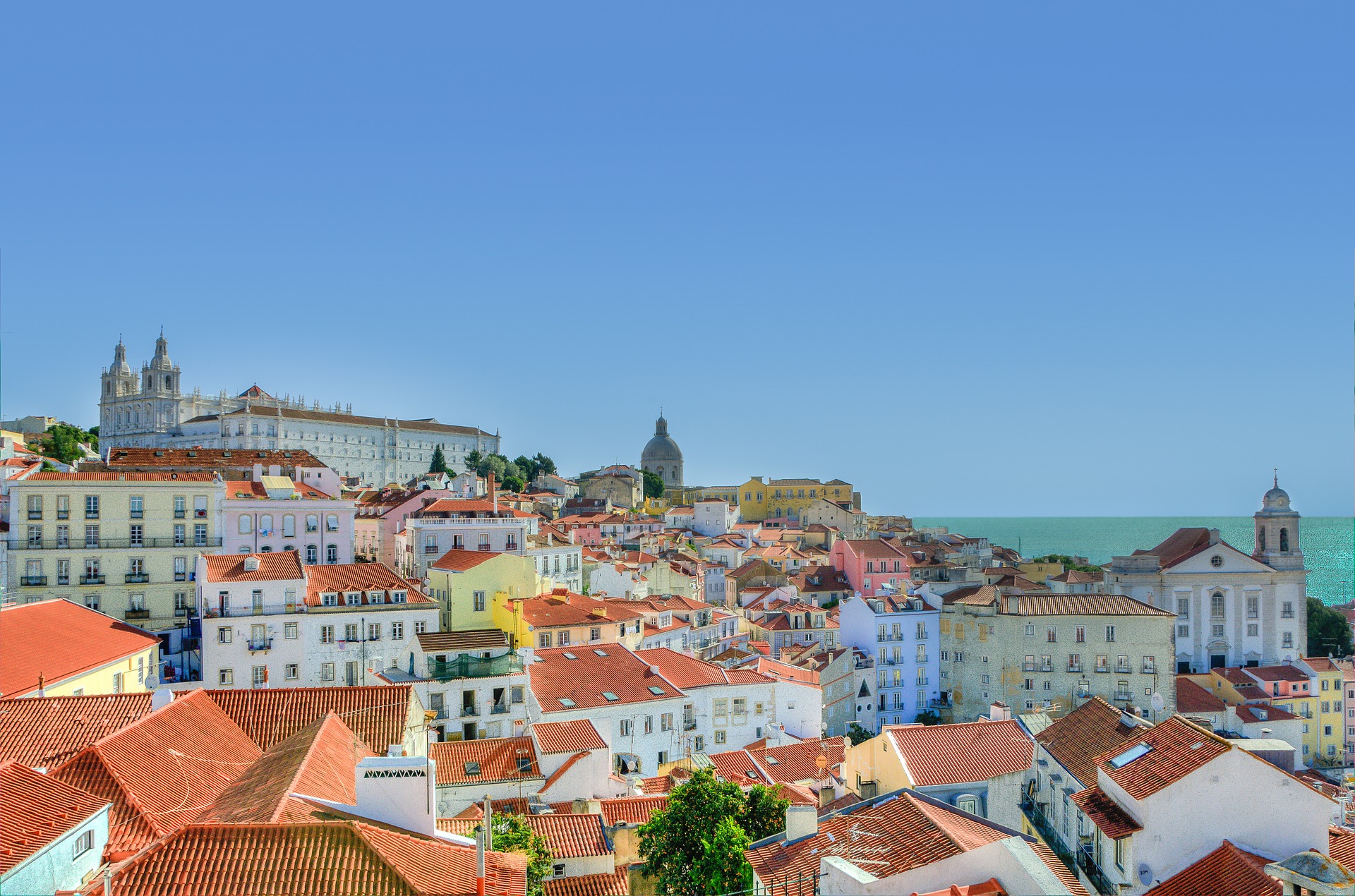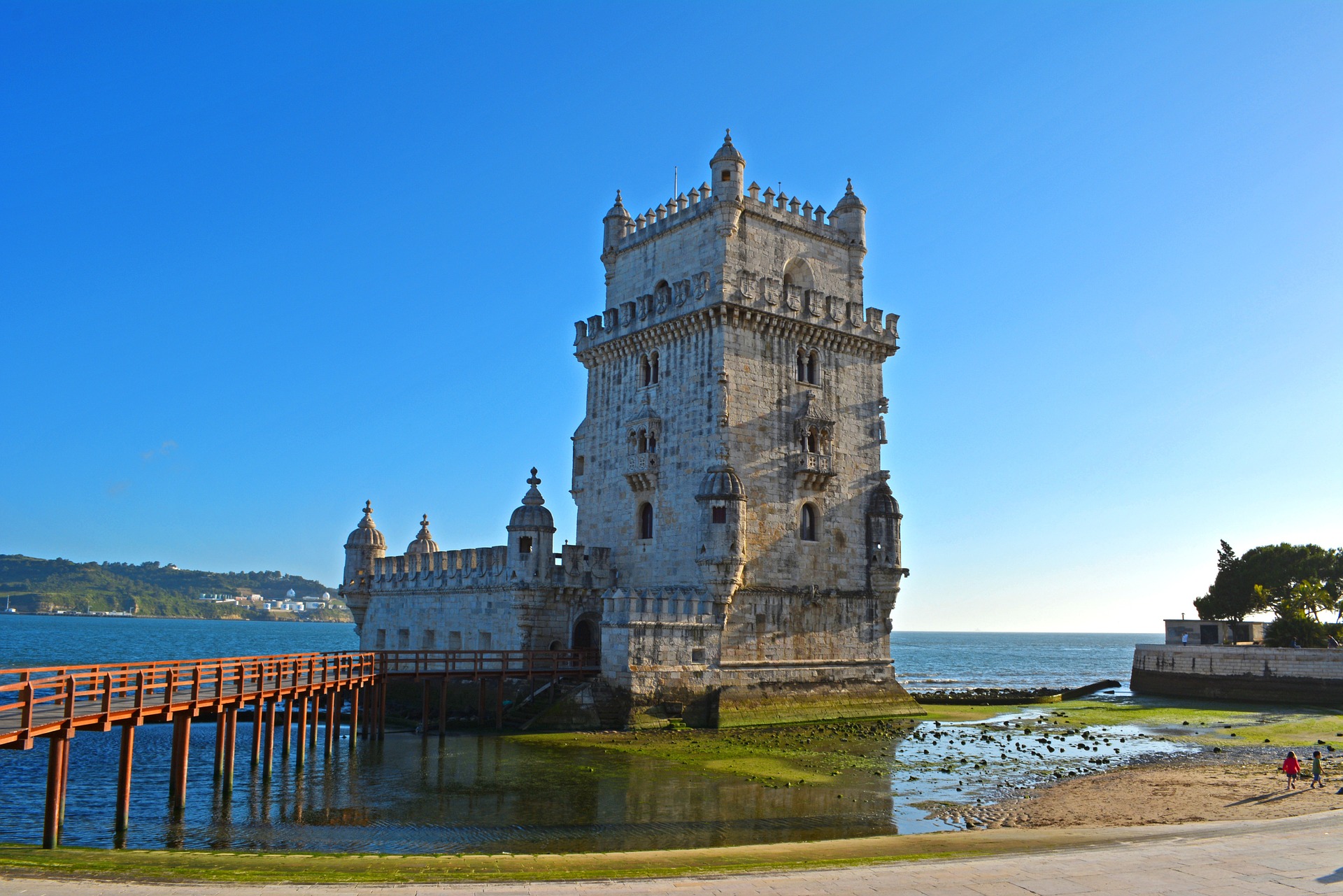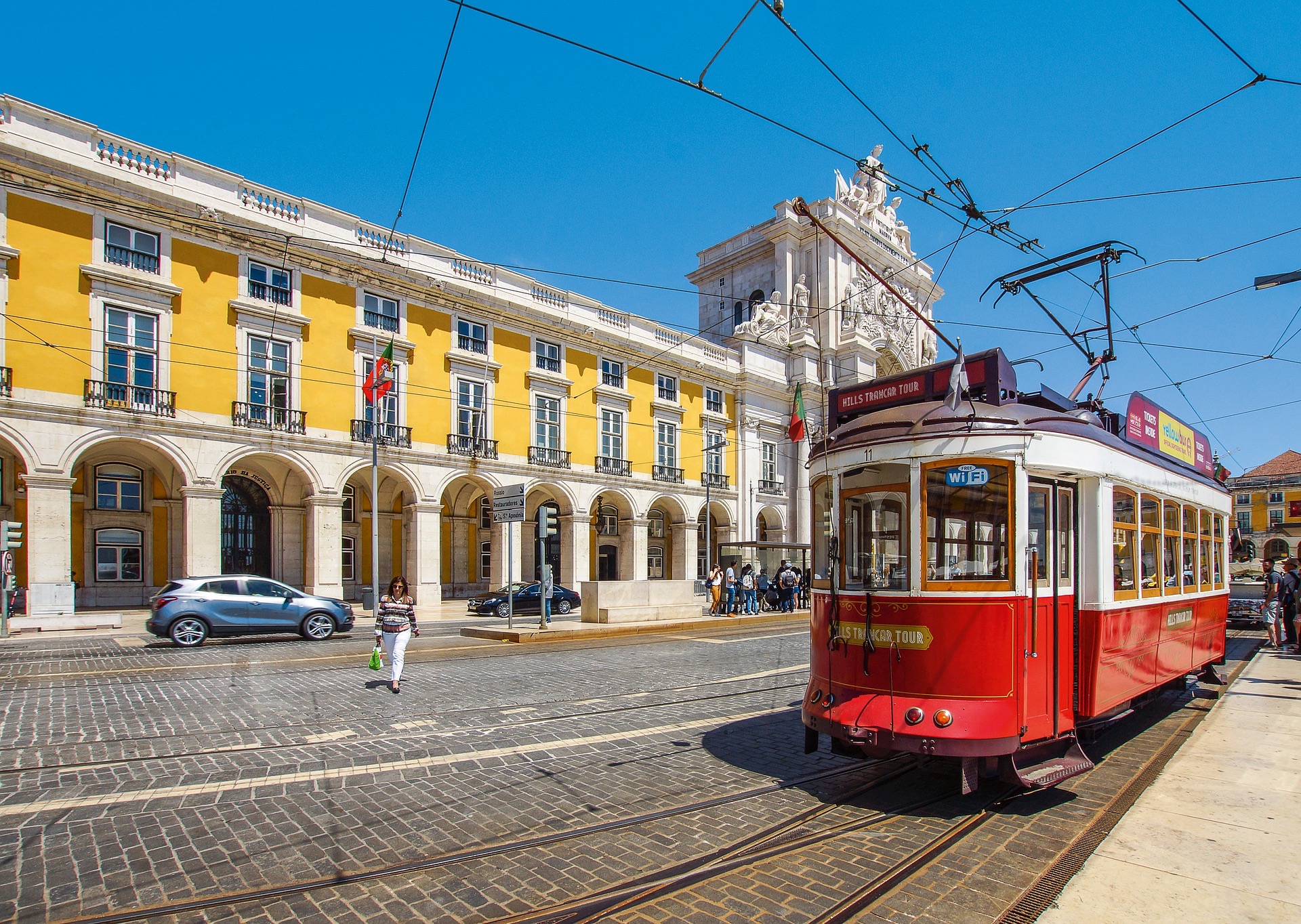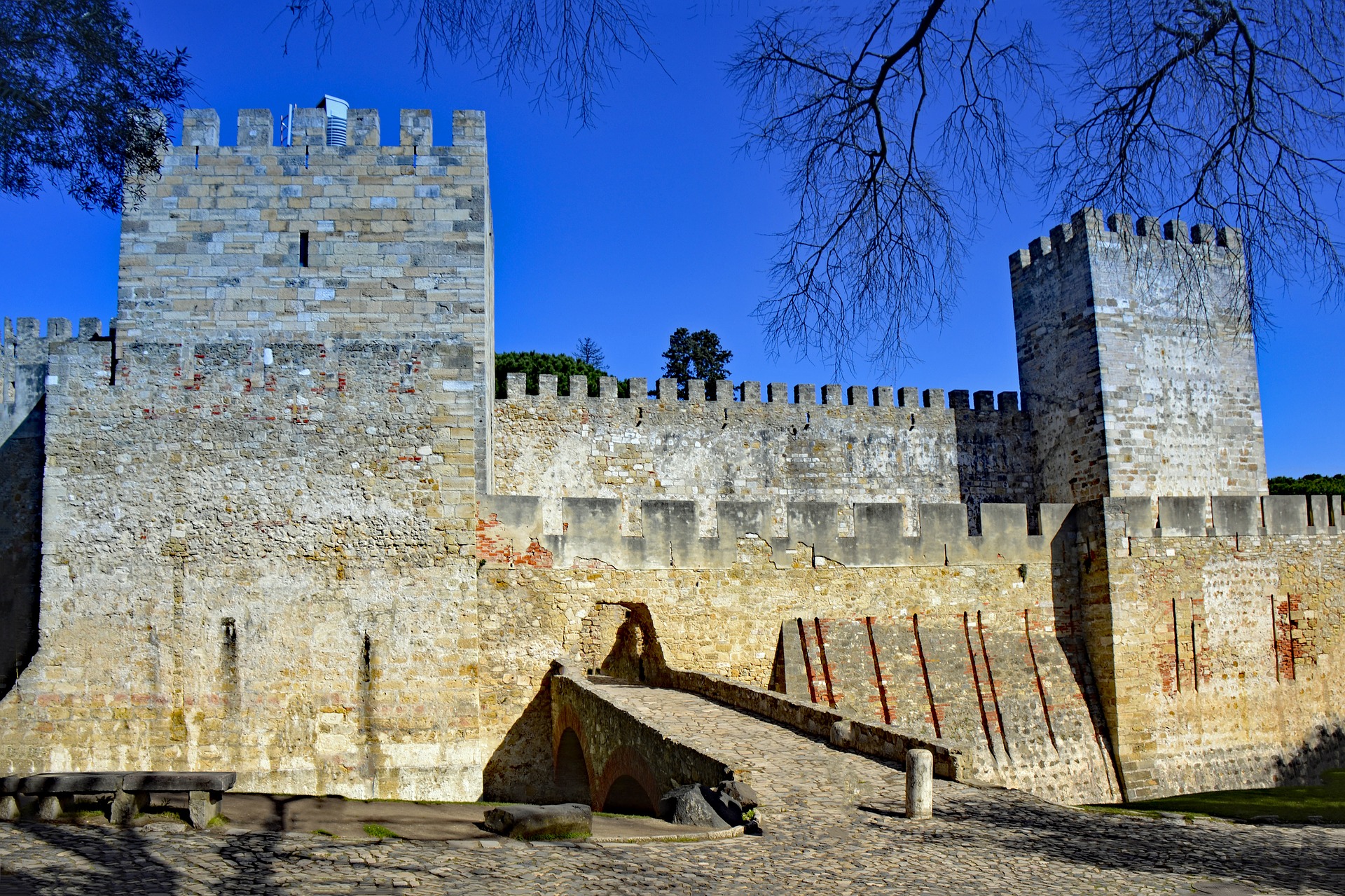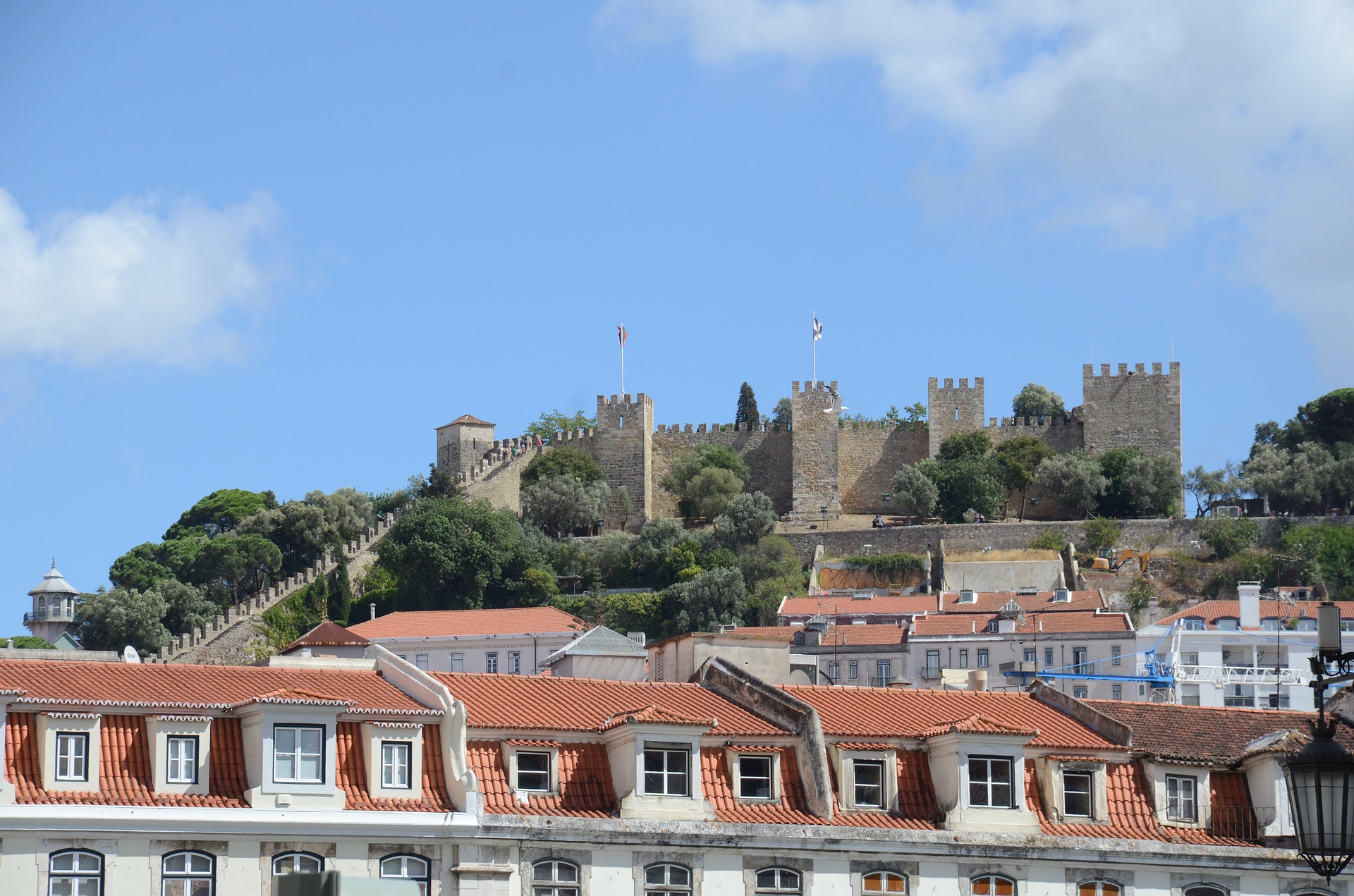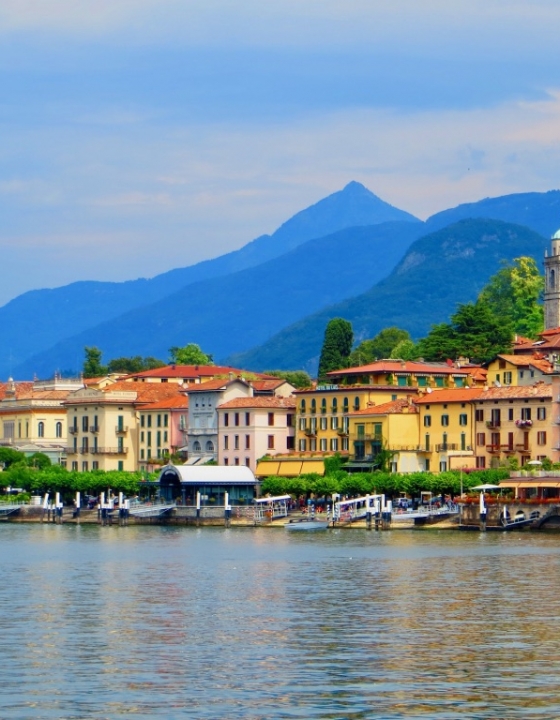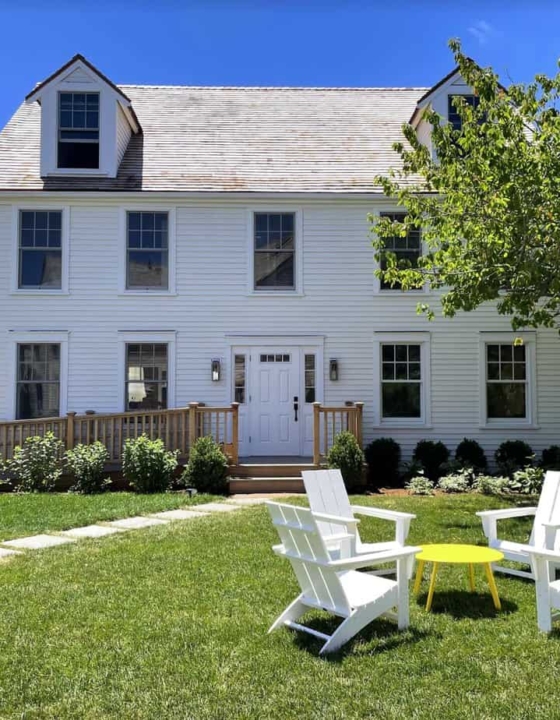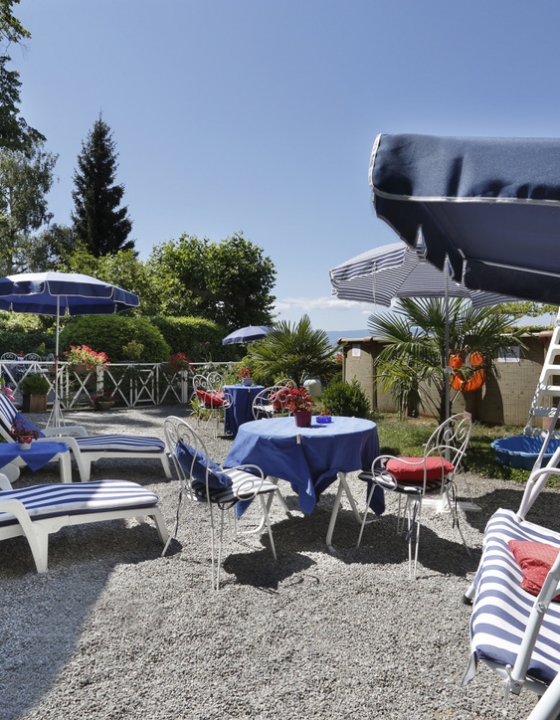What to do in three days in Lisbon
Hi everyone and Welcome back to the European Travel Section of The Code of Style Magazine., and I hope you enjoy this guide to three days in Lisbon.
I’m Julia Rees and I’m the founder and owner of the Style and Travel blog ‘The Velvet Runway’
I have always been passionate about travel and spend much of my free time travelling or planning my next weekend trip/ holiday. I believe that travel is the one expense that makes you richer and that learning about other cultures and lifestyles is a truly rewarding and enlightening experience.
I’m excited to share my travel inspiration and advice with you to help you plan your own European adventures. Today is all about Portugal’s stunning capital city, Lisbon.
Lisbon is a very beautiful city with its pastel-coloured buildings and stunning views. It also has the added advantage that you can combine a city and beach break in one.
Obviously, you could easily spend longer than a weekend in Lisbon, particularly with the variety of short excursions available, but it is feasible to visit the majority of the tourist sites in a week-end with time left over to enjoy the delicious local specialities, such as ‘pastel de nata’ (custard tart)
Below is a guide for what to do in three days in Lisbon.

Day One
Baixa
On arrival at Lisbon, start with the historic district of Baixa, as this is feasible, even if you arrive on a late afternoon flight, and many of the tourist attractions can be found in this neighbourhood, as well as an extensive range of bars and restaurants.
The Baixa district of Lisbon is considered as the central, downtown area and it covers the area from the Avenida da Liberdade to the banks of the River Tagus.
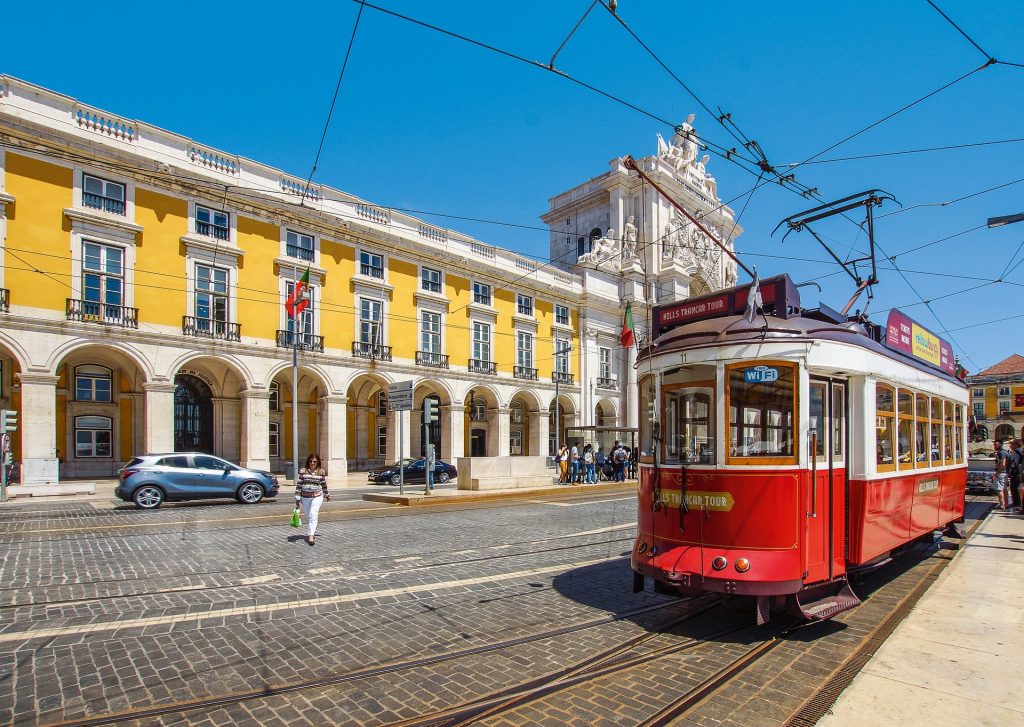
Start on the famous “Rossio” square (“The Praça Dom Pedro IV”), which is the main central square of Lisbon and home to the “Teatro Nacional” and the “Rossio” train station. From here, stroll down the pedestrianised Rua Augusta to the “Arco da Rua Augusta”, (the Rua Augusta Arch and Lisbon’s equivalent to the Parisian ‘Arc de Triomphe’). This arch connects Rua Augusta Street with the Commerce Square (“Praça do Comércio”/ nickname – “Terreiro do Paço”) and the views from the top of the arch across the plaza, the Rua Augusta, the Cathedral, São Jorge Castle and the river Tagus are stunning. You can choose to take the stairs or use the lift, and the arch is open daily from 9am until 7pm, with tickets priced at 2€50 (free for children up to 5).
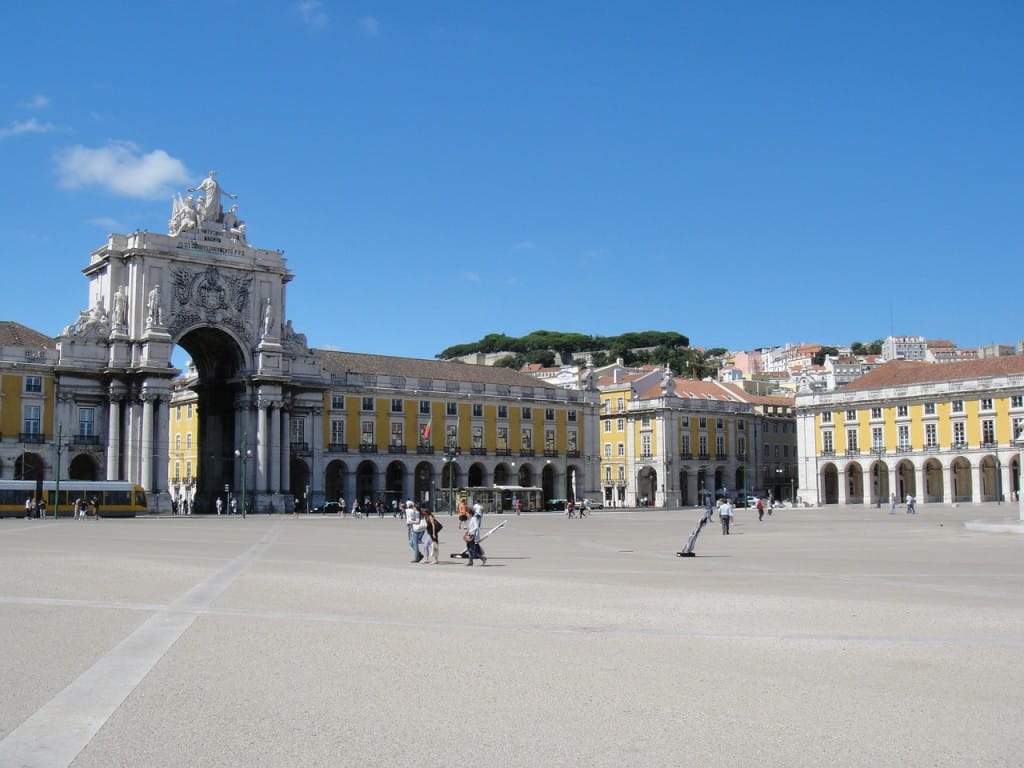
When you come down, go throughout the arch to the Palace Square (Praça do Comércio), which is the grandest of the plazas found in the Baixa district and as it is situated on the waterfront was historically the gateway to the city.
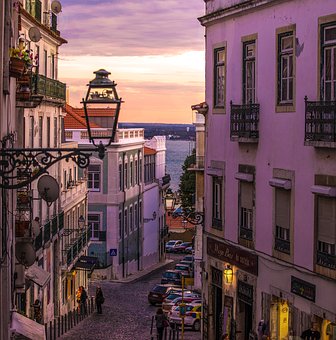
The main tourist office is also located here and if you arrive late on a Friday evening, there are plenty of bars and restaurants to occupy your first evening in Lisbon.
Day two
Belém
Take a trip to Belém in the morning. I would recommend getting off the tram (Tram 15) or bus at the Jerónimos Monastery (“Mosteiro dos Jerónimos”), which was built in the 16th century to commemorate explorer Vasco da Gama’s trip to India and which is also his final resting place. The cloisters of this 15th century monastery are very beautiful and it is listed as a World Heritage Site.
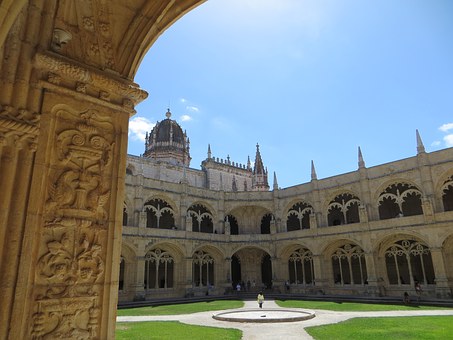
The monastery is open from 10 am to 5,30 pm from October to May and from 10 am to 6,30 pm from May to September, but closed on Mondays. Admission is currently 10€ for an individual ticket or 12€ for a combined ticket with the Belém tower, but it is free on the first Sunday of every month.
For more information on opening times and exhibits, visit their site.
Carry on beyond the monastery and you will come to the famous tower of Belém (“Torre de Belém”), which has been listed as a World Heritage Monument by UNESCO.
Admission to the tower costs 6€ for an individual ticket or 12€ for a combined ticket with the Jerónimos Monastery and the opening hours are the same as for the monastery.
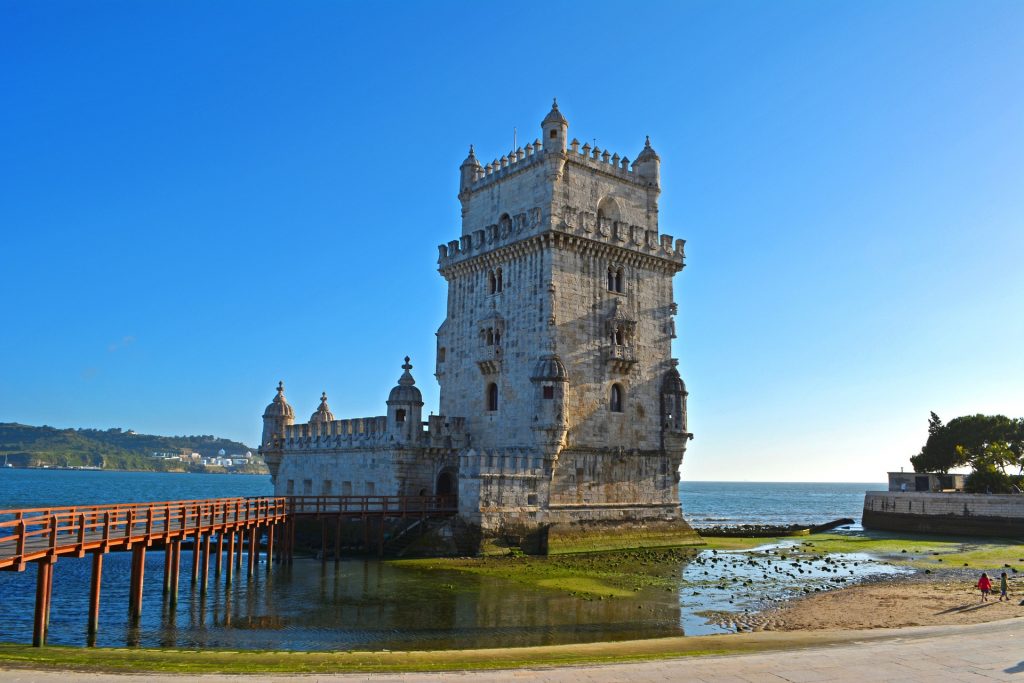
The view over the Tagus River, Belém and the monuments are worth the climb to the top of the tower. For more information have a look at their website

While you are in Belém, take some time to enjoy a custard tart at Pastéis de Belém, a bakery that has been selling Portugal’s famous custard tarts since the nineteenth century. You will recognise it by the queues!

As you walk back towards Belém you can see the “Ponte 25 de Abril” (Lisbon’s version of the Golden Gate Bridge in San Francisco) which connects Lisbon to the municipality of Almada on the left (south) bank of the Tagus river. This suspension bridge was completed in 1966 and originally named after dictator Salazar but its name was changed after the revolution of April 25, 1974.
Alfama
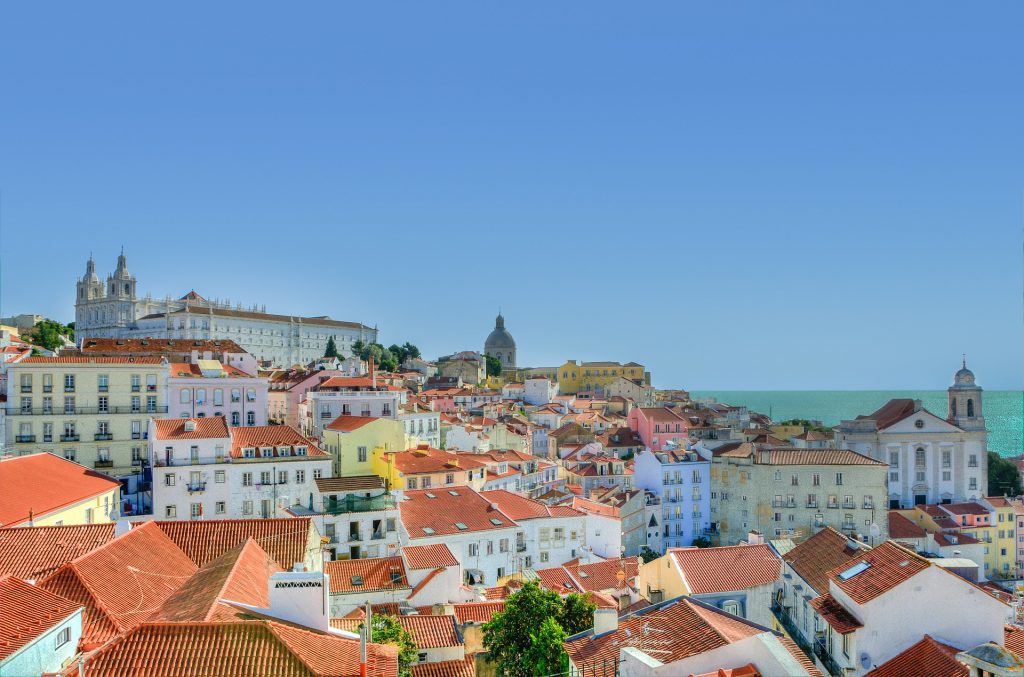
In the afternoon visit Alfama, the oldest neighbourhood of Lisbon, but be prepared for some exercise, as the cobbled lanes are very steep. As you walk up, have a look at the gothic 12th century Sé cathedral, Saint Anthony’s church (the birthplace of Saint Anthony of Padua, the patron saint of Lisbon) and the Conceição Velha Church (a 16th century church built on the site of a 15th century Jewish temple).

Alfama is colourful: you can see multi-coloured houses against a beautiful backdrop of (usually) blue sky, but it is not perfectly maintained – you will probably see derelict buildings, graffiti and washing hanging out to dry from balconies, but it is an area where people live and the maze of cobbled streets are a delight.
Other sites in Alfama include the Pantheon Nacional (which is open from Tuesday to Sunday between 10:00 and 17:00. The entrance fee is 3€ but it is free on Sunday mornings and national holidays). and the Roman Amphitheater (which is located close to the Sé Cathedral and is free to visit).
On Tuesdays and Saturdays, you can browse through the Feira da Ladra, a big flea market, close to the Pantheon.
St George’s Castle
The magnificent St George’s Castle (Castelo de São Jorge) in the heart of Alfama is 1000 years old and its ramparts provide one of the most spectacular views of the city and the Tagus River.
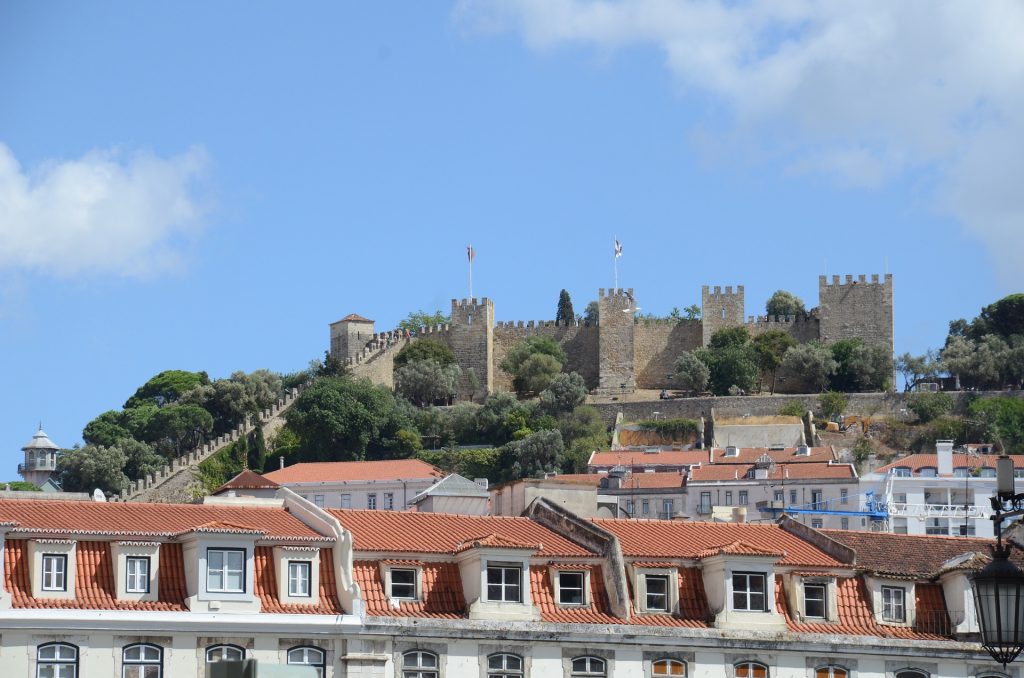
The castle is open from 9am to 6pm daily and from 9am until 9pm from 1st March until 31st October. Standard adult admission is 8€50, although various reduced rates are available. For more information, see the castle’s website
Although the views from the castle are spectacular at any time I would especially recommend a tour at sunset.
Finally, no visit to Alfama is complete without a ride on the yellow number 28 tram!
Day three
Take a day trip to Sintra and Cascais
On the last day of your three days in Lisbon, I would recommend hiring a car for today, although it is possible to take the train.
Sintra
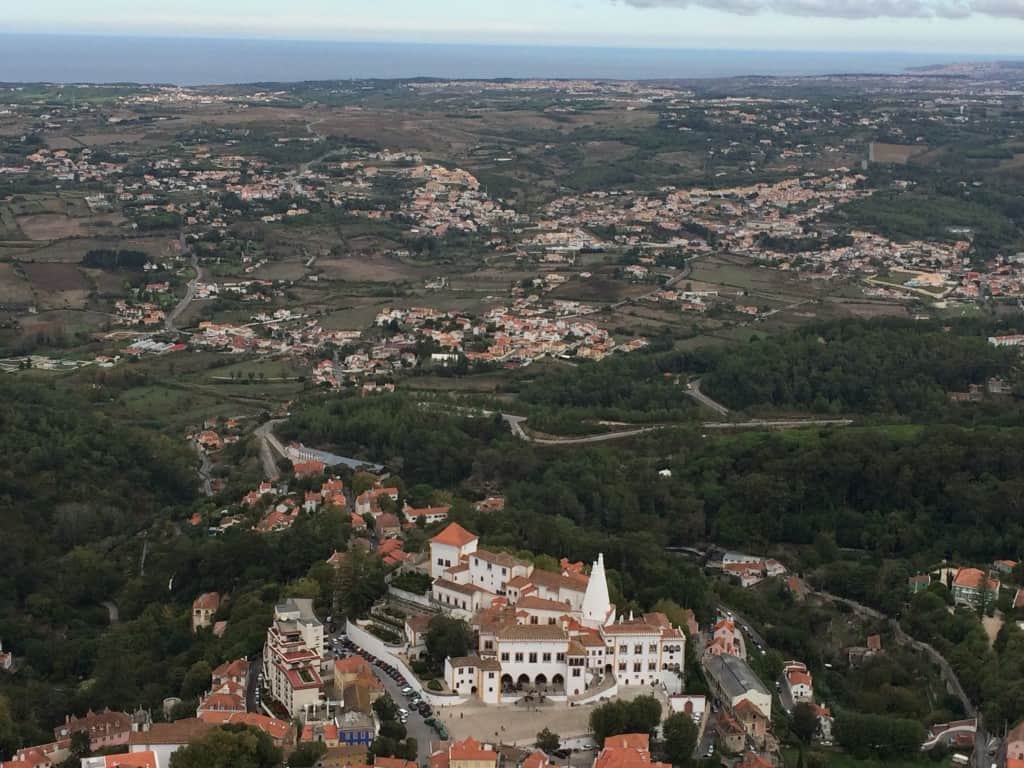
In the morning, drive out to the old town of Sintra, which is listed as a UNESCO World Heritage Site. Built at the foot of the highest peak of the Serra de Sintra range, the historical town centre is very pretty with its cobbled streets and Sintra is renowned for its many beautiful palaces and castles.
Take time to browse the artisan boutiques in the town centre and stop for a coffee and the delicious local specialty of ‘travesseiros’ – delicious almond pastries in the main square (you will need your energy for the steep climb to the Castelo dos Mouros and the Palacio da Pena) before setting off to explore.
Castel dos Mouros and the Palacio da Pena
To be honest, the lady in the tourist office (which is located in the main square) recommended taking the bus up to Castelo dos Mouros, but we decided to walk off our pastries and make room for lunch!
If you enjoy walking and don’t mind a steep climb, then the walk is totally feasible and there are some beautiful views on the way up. However, there are also some beautiful views from the castle, so if you prefer to conserve your energy and you haven’t over-indulged then the bus is a good option
The castelo dos Mouros is an old Moorish castle, dating back to the ninth century, when it was built by the North-African Moors to guard the town.
Although, it is now largely in ruins the views from the castle justify the climb. The castle is open daily from 10am to 6pm (last ticket at 5pm) and the standard adult ticket is 6€50. For more information on planning your visit and opening hours, take a look at the Parques de Sintra website
From the castelo dos Mouros, you can see the colourful Palacio da Pena, which is Sintra’s most famous site. There is a footpath across to Palacio da Pena but we were a little pushed for time so decided to save this for another day!
However, you can find information about opening times and prices here
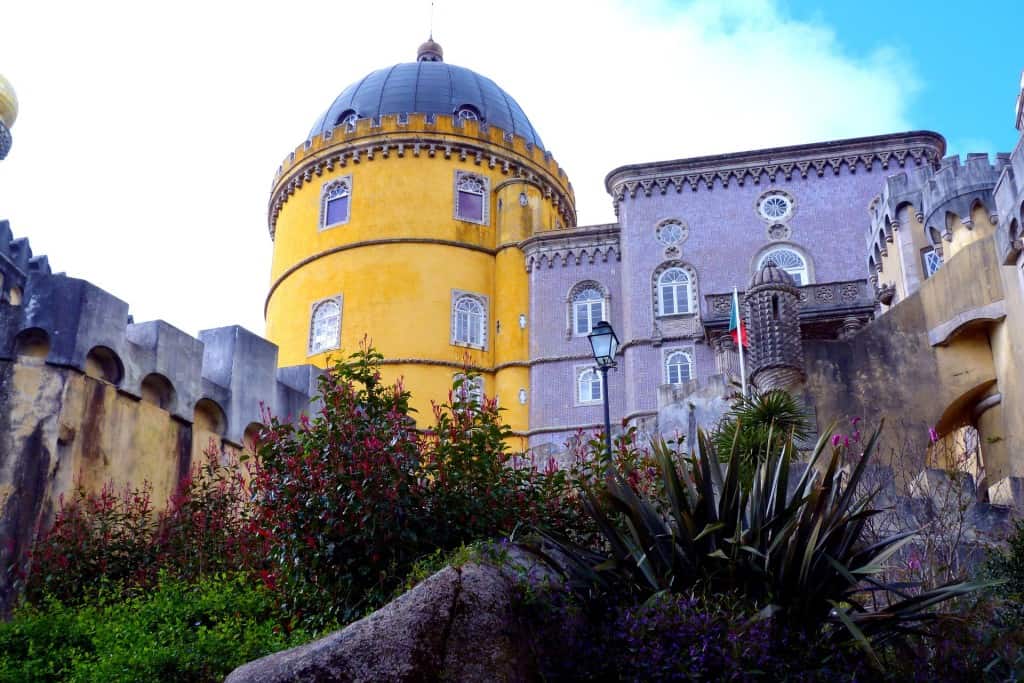
When you come back down to Sintra, after a leisurely lunch in one of the many restaurants, you can visit The Palacio Nacional de Sintra, which is the only palace to be located in the actual town and it was built as a summer residence for the Portugese royal family.
Cascais and the coast
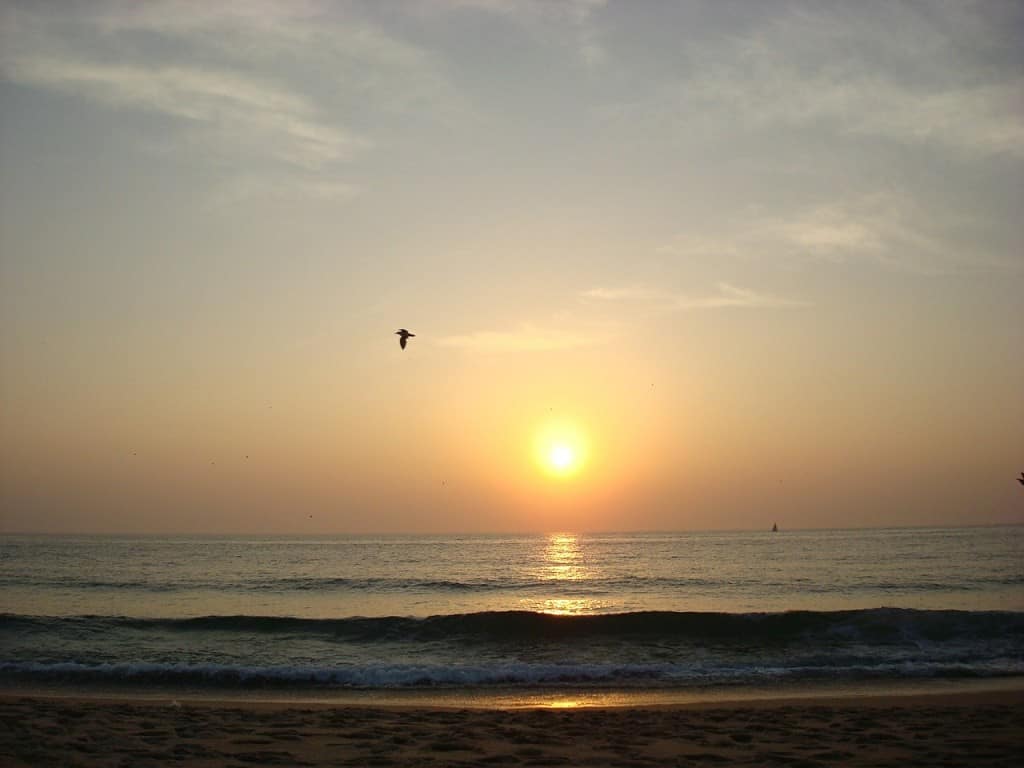
After you have visited all the castles you want to, I would suggest you drive down to the coast and the picturesque seaside town of Cascais in time to catch the sunset and enjoy dinner. (It is possible to take a 40-minute train-ride from Lisbon to Cascais if you don’t have a car).
Other attractions
Obviously, in a weekend, it is not possible to visit everything, and you may want to replace the trip to Sintra and Cascais with some of the following suggestions
- A visit to the “Palacio Nacional de Belém” and the Museum of Carriages (“Museu Nacional dos coches”): the pink Palacio de Belém is the official residence of Portugal’s president but it can only be visited on Saturdays. The Museu Nacional dos Coches is housed in part of the Belém Palace and contains a collection of horse carriages.
- Spending time in the Bairro Alto district, which transforms from a quiet Lisbon neighbourhood in the day to a lively meeting place at sunset
- A visit to Expo Park (“Parque das Nacoes”) – you can easily spend a whole day here, if you include a visit to the Oceanarium and the shopping centre and there are lots of bars, restaurants and nightclubs for the evening
- Shopping – one of my regrets this weekend was that I didn’t have enough time to shop. If, however, you prefer to shop than visit some of the sites, I have been told that the LX Factory (lx factory site) is the place to go, as it is packed full of fashion and interiors outlets! Having looked at their website, this will definitely be on my list for next time!
Traveller’s tips
The public transport system includes trains, buses, trams and the metro, as well as the funicular. Walking around the individual neighbourhoods is easy but you may want to use public transport to get out to Belém, for example, or to get up to the Castelo de São Jorge
The ‘Lisboa’ card includes free unlimited public transport (bus, tram, metro, elevators and funiculars), free train travel to Sintra and Cascais, and free access to 26 museums and monuments. It can be purchased for 24 hours (18€50 for adults or 11€50 for children), 48 hours (31€50 for adults or 17€50 for children) or 72 hours (39€ for adults and 20€50 for children). Click here for further information.
If you’re looking for some more inspiration on what to do, have a look below:
I hope you enjoyed this article about how to spend three days in Lisbon and I can’t wait to share some more travel inspiration with you next month! In the meantime, you can fill inspiration on my blog and follow along on Instagram. Don’t forget to check out all the other fabulous posts by the other Editors and follow The Code of Style on Instagram.
Julia x


